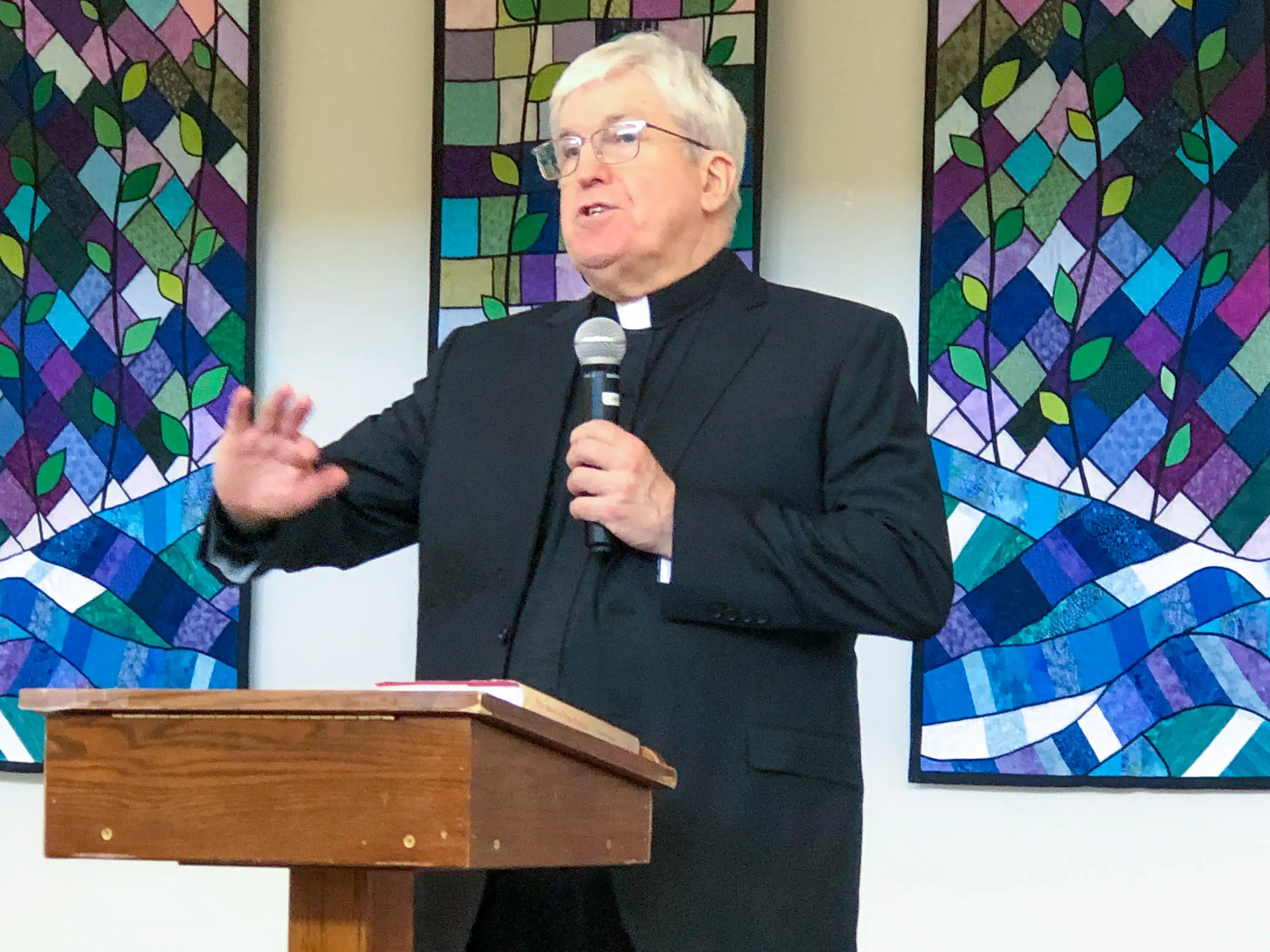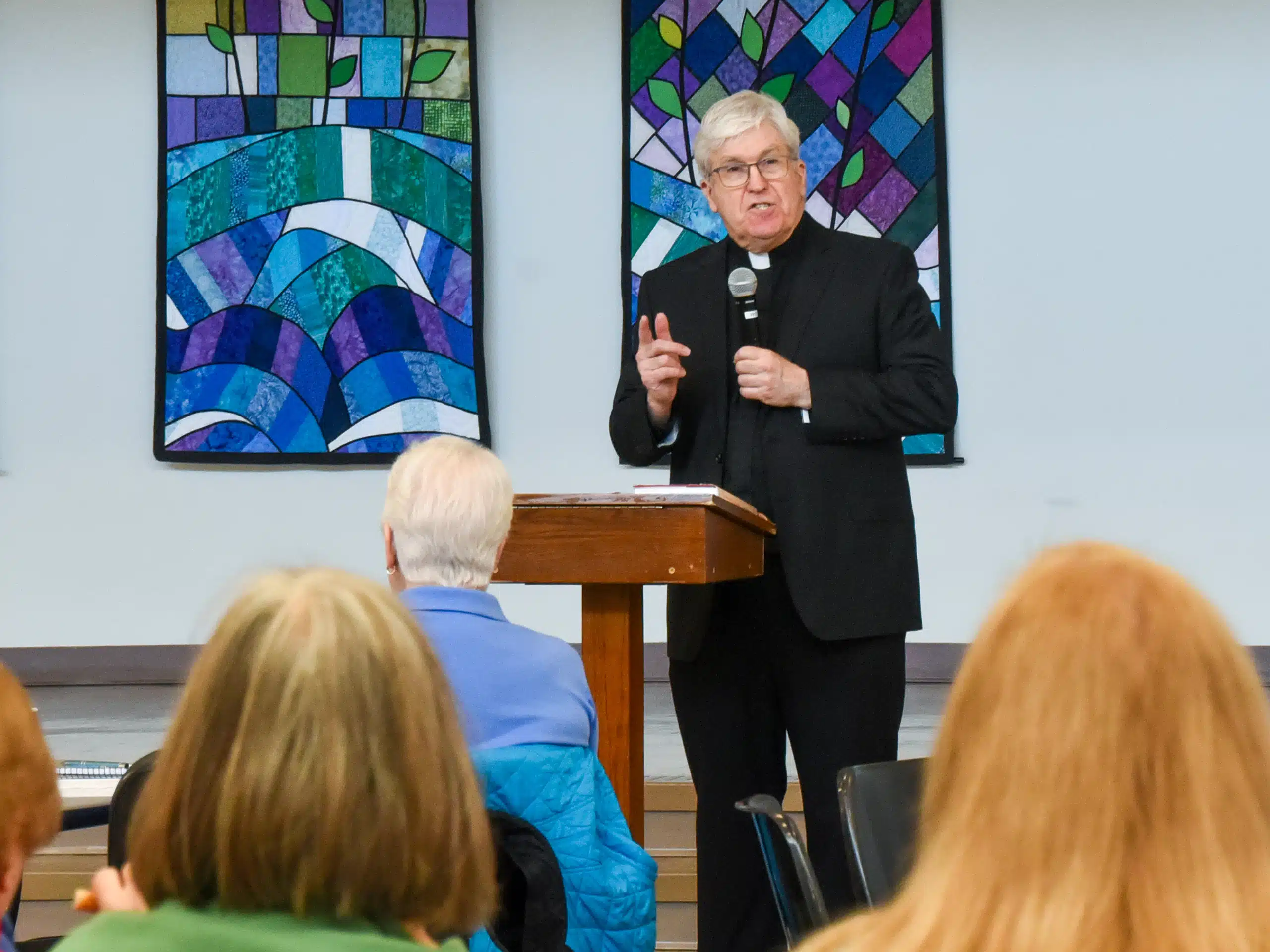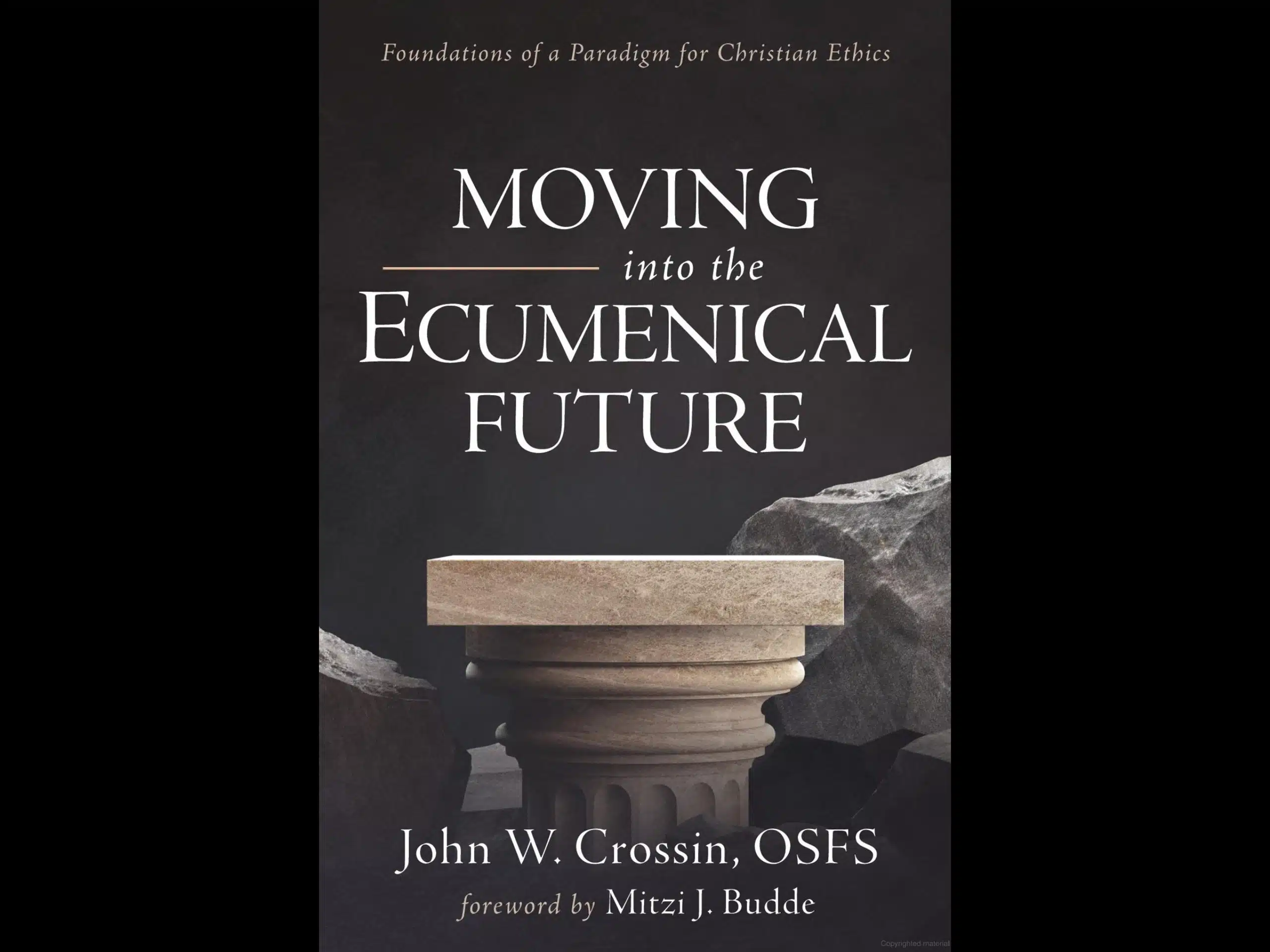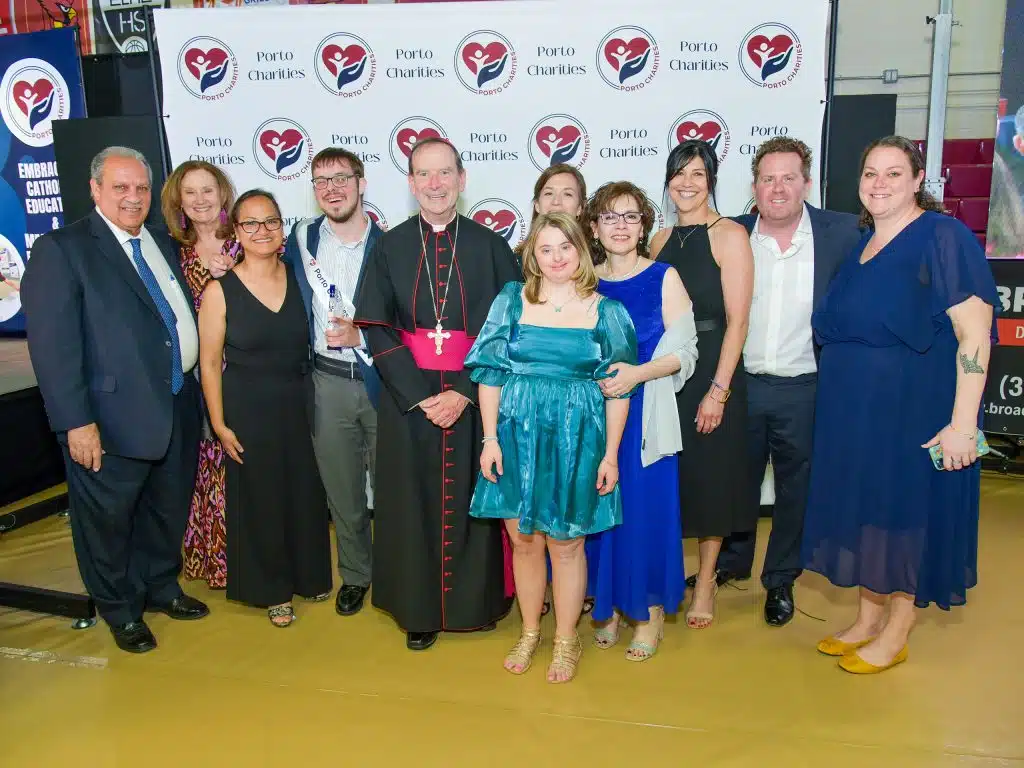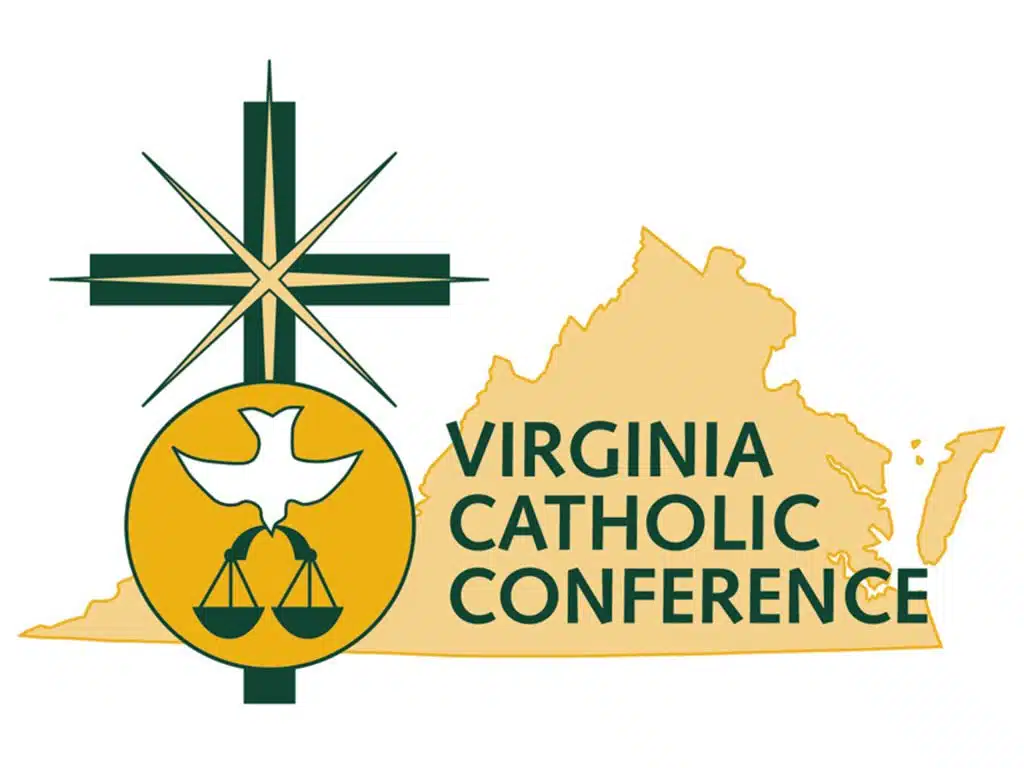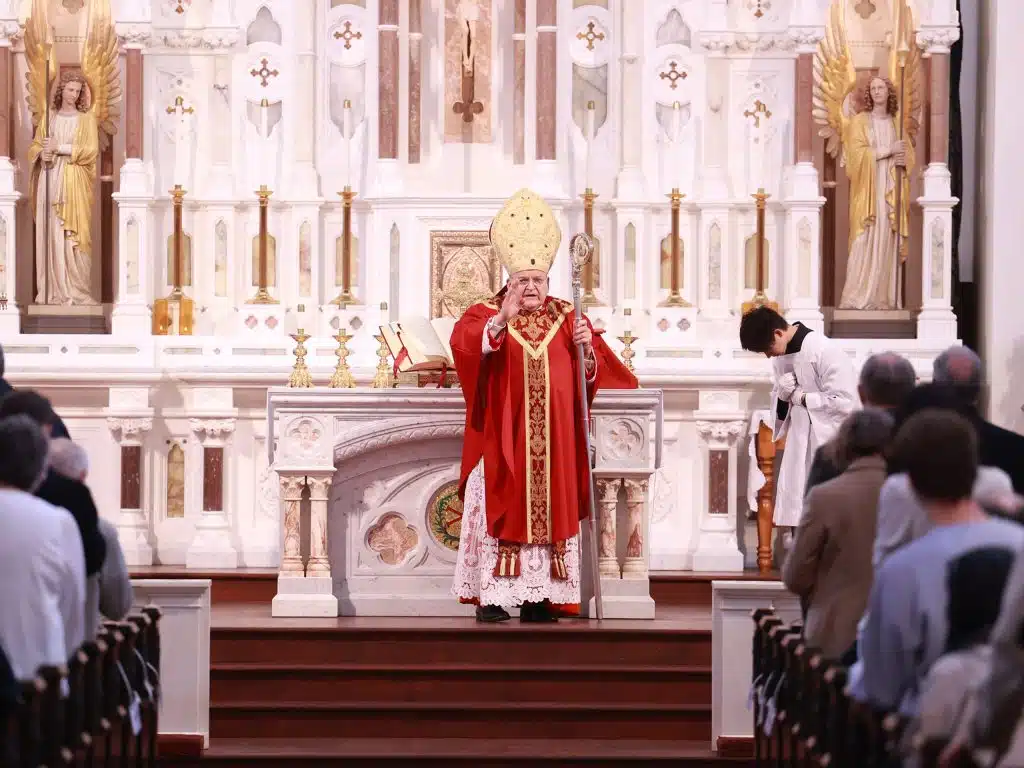Father John W. Crossin is an optimistic ecumenist.
“Christian unity will come sooner than you think,” predicts the former executive director of the Secretariat for Ecumenical and Interreligious Affairs of the U.S. Conference of Catholic Bishops. His new book, “Moving into the Ecumenical Future,” recaps the progress of the modern movement and shares the underpinnings of his optimism.
A moral theologian, psychologist and priest in the Oblates of St. Francis de Sales, Father Crossin served at the USCCB 2011-16, after 13 years as executive director of the Washington Theological Consortium. Pope Francis appointed him a consultor to the Pontifical Council for Promoting Christian Unity (2014-20) and he has contributed to many national and international ecumenical advances in recent years.
“We have to agree on some central things; that doesn’t mean we agree on everything,” he said. It will be up to church leaders to decide how much agreement is enough. “Drawing that line is not easy,” he acknowledged. “For some, it’s all or nothing.”
When speaking to laypeople, as he did Feb. 11 at St. John Neumann Church in Reston, the first thing he does is define his terms. “Ecumenism is about Christian unity,” he said. The book does not discuss the separate issue of interfaith dialogue with other religions such as Islam, Judaism or Hinduism.
Father Crossin said he’s sometimes pressed to be more specific about “when Christian unity will begin to occur.” When he recently told one questioner “it could happen in the next 15 years,” he said many expressed surprise, “because it is not infinity.”
“I’m not sure everybody would go along with that,” he added, “but I’m an optimistic Salesian. You never should box in the Holy Spirit too much.”
As an Oblate, Father Crossin’s 50-plus years of formation in the spirituality of St. Francis de Sales certainly contributes to his hopeful stance. De Sales won back many souls to Catholicism after the Protestant Reformation with “a gentle, charitable approach,” in an era when “the dominant view was that this is a war,” Father Crossin said.
The saint’s spirituality was “completely orthodox — he is a Doctor of the Church,” he added. But when discussing Catholicism with Protestants, de Sales always respected the dignity of his opponents. “If you treat people with dignity, they want to talk to you again.”
Another ecumenical role model he discusses is Pope Francis, who takes a pastoral approach without condoning or endorsing views that diverge from Catholic teaching. “You can have tensions that cause you to go deeper,” Father Crossin said. “He is comfortable living with the tensions.”
Unity already is farther along than some Catholics might realize. Despite different worship styles and cultures, Eastern Catholic churches are in full communion with Rome, and strides have been made with Protestant denominations including Lutherans and Anglicans, he said.
When asked why Catholics should care about ecumenism in a world where divisiveness has become the norm, Father Crossin paused, tilting his head. “Because Jesus prayed for it,” he said, citing the Gospel of John, 17:21: “so that they may all be one.”
Christians “were meant to be one,” and a cacophony of voices distracts from the church’s mission. “It’s hurting us that we’re divided. It has kept a lot of people from becoming Christians,” he said.
Father Crossin “is the most ecumenically committed person I’ve ever met,” said Mitzi J. Budde, a professor at Virginia Theological Seminary in Alexandria, friend and colleague who wrote the foreword to the book. “He calls us all to grow together in our practice of the faith and our discernment around moral matters,” she wrote.
Issues of sexual morality, such as contraception and abortion, homosexuality and gender dysphoria, are among the sticking points between Catholics and Protestants, said Father Crossin, who calls for a new ecumenical task force to focus on such issues. But he also cites many areas of agreement, such as social justice and personal spirituality.
Catholics work side by side with other Christians at food pantries, homeless shelters and social service ministries, and many are in ecumenical marriages. Catholics also meet those of other denominations on retreats at monasteries and spirituality centers, where they develop deep friendships and share intimately about their prayer lives and desire to grow in Christian discipleship.
These encounters are a hopeful sign for ecumenism, because “we can see that they too are trying to follow Jesus,” Father Crossin said. “We see that one can become holy by following the Gospel as an Orthodox Christian or an Anglican” or a member of another denomination.
Perhaps most importantly, ecumenists need to remember to rely on the Holy Spirit. “If God is not guiding us, it won’t happen,” he said.
Find out more
“Moving Into the Ecumenical Future” is published by Pickwick Publications, an imprint of wipfandstock.com.
Fr. Crossin will speak on “The Church and the World” March 31 at 7 p.m. at St. John Neumann Church, 11900 Lawyers Rd., Reston.
